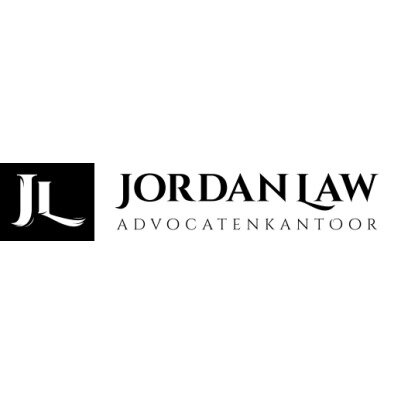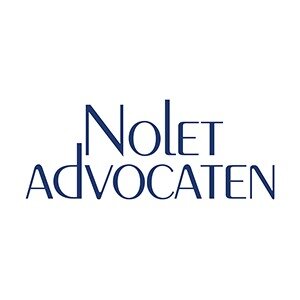Best Education Law Lawyers in Netherlands
Share your needs with us, get contacted by law firms.
Free. Takes 2 min.
Or refine your search by selecting a city:
List of the best lawyers in Netherlands
About Education Law in Netherlands
Education Law in the Netherlands encompasses the rules and regulations that govern the Dutch education system. It addresses the rights and obligations of students, parents, educational institutions, and the government. Key aspects include access to education, quality standards, rights to special education, and educational funding. The Dutch education system is renowned for its inclusivity and high standards, aimed at providing equitable access to learning opportunities for all students.
Why You May Need a Lawyer
There are various situations where individuals may require legal assistance in Education Law. Some common scenarios include disputes over school admissions, instances of discrimination or unequal treatment, issues related to special educational needs or disability accommodations, disagreements over educational assessments or credentials, and conflicts involving education funding or subsidies. A lawyer specializing in education law can provide expert guidance and representation to navigate these complex issues.
Local Laws Overview
The education system in the Netherlands is structured to ensure compulsory education for children aged 5 to 16, with partial obligation until 18 or until diploma achievement. The Wet op het primair onderwijs (Primary Education Act) and Wet op het voortgezet onderwijs (Secondary Education Act) regulate these sectors, ensuring quality and standards. The Equal Treatment in Employment (Education) Act ensures the right to non-discriminatory education practices, and the Participation Act emphasizes student and parental involvement in educational decision-making. Special Education Law ensures that students with disabilities receive appropriate schooling and accommodations.
Frequently Asked Questions
What is the minimum school-leaving age in the Netherlands?
The minimum school-leaving age in the Netherlands is 16, with a partial obligation to attend until 18 or until acquiring a basic qualification.
Are there laws ensuring access to education for children with special needs?
Yes, Dutch law mandates that children with special needs have access to appropriate education and accommodations under the Special Education Law.
Can foreigners enroll in Dutch public schools?
Yes, foreigners can enroll in Dutch public schools. Schools must accommodate students regardless of nationality, provided they meet the age and residency requirements.
How are disputes with schools usually resolved?
Disputes may involve mediation, intervention by educational boards, or legal action if necessary. A lawyer can help in navigating these procedures.
What rights do parents have in influencing school decisions?
Parents have rights to participate in decision-making processes, often through parent councils, as outlined in the Participation Act.
Is homeschooling legal in the Netherlands?
Homeschooling is generally not permitted under Dutch law, with rare exceptions if certain strict conditions are met and approved by authorities.
What constitutes discrimination in Dutch schools?
Discrimination can involve unequal treatment based on race, gender, disability, or other protected characteristics. The Equal Treatment in Employment (Education) Act addresses these concerns.
Can I appeal a school’s decision on my child’s placement?
Yes, you can appeal through the school’s complaints procedure or legally with the help of an attorney if necessary.
Are there specific laws concerning religious education?
Yes, Dutch law allows for the establishment of religious schools, granted they comply with national education standards and secular education always remains accessible.
How can foreign qualifications be recognized in the Netherlands?
Foreign qualifications can be assessed by credential evaluation agencies to determine Dutch equivalency, sometimes needing legal advisement for complex cases.
Additional Resources
Individuals seeking information or assistance can contact the Ministry of Education, Culture and Science, educational legal advisors, or organizations like the Dutch Parents Association (Ouders & Onderwijs). Additionally, the Equal Treatment Commission (Commissie Gelijke Behandeling) can provide guidance related to discrimination concerns.
Next Steps
If you require legal assistance in education law, consider consulting with a specialized education law attorney. Start by outlining your specific concerns or questions. Gathering all relevant documentation and understanding your rights and obligations is crucial. Research local legal service providers or contact a legal aid bureau for guidance. Prepare to engage in mediation before considering formal legal proceedings, depending on your case's nature.
Lawzana helps you find the best lawyers and law firms in Netherlands through a curated and pre-screened list of qualified legal professionals. Our platform offers rankings and detailed profiles of attorneys and law firms, allowing you to compare based on practice areas, including Education Law, experience, and client feedback.
Each profile includes a description of the firm's areas of practice, client reviews, team members and partners, year of establishment, spoken languages, office locations, contact information, social media presence, and any published articles or resources. Most firms on our platform speak English and are experienced in both local and international legal matters.
Get a quote from top-rated law firms in Netherlands — quickly, securely, and without unnecessary hassle.
Disclaimer:
The information provided on this page is for general informational purposes only and does not constitute legal advice. While we strive to ensure the accuracy and relevance of the content, legal information may change over time, and interpretations of the law can vary. You should always consult with a qualified legal professional for advice specific to your situation.
We disclaim all liability for actions taken or not taken based on the content of this page. If you believe any information is incorrect or outdated, please contact us, and we will review and update it where appropriate.
Browse education law law firms by city in Netherlands
Refine your search by selecting a city.















